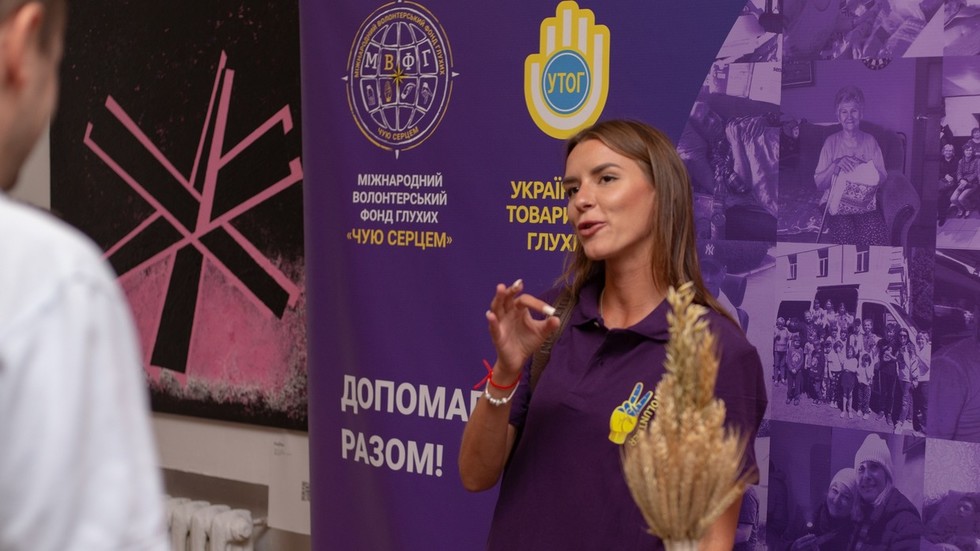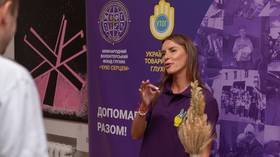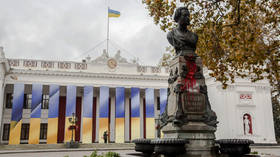
The community “wants nothing to do with the Russian language,” the deputy head of the Society of the Deaf told the media

© Facebook / Ukrainian Society of the Deaf
The Ukrainian Society of the Deaf has set up a committee to eradicate Russian components of the sign language used in the country, the Kyiv Independent has reported.
The commission is working to reconstruct historical Ukrainian signs, develop new gestures and fingerspelling, or adopt international equivalents, for use by people with hearing and speech disorders, the outlet said in an article on Saturday.
“We are trying to get rid of all sign characters that have even a hint of Russianism,” commission member Natalia Adaniuk, a fourth-generation deaf person, said.
The so-called “de-Russification” of sign language began shortly after the outbreak of the conflict between Moscow and Kiev in February 2022. It continues as part of a wider push by the Ukrainian authorities to cut any links to Soviet or Russian culture, which, among other things, has seen hundreds of settlements renamed and monuments to Russian historical figures, such as Catherine the Great or poet Alexander Pushkin, dismantled.

Read more
One of the first words to have been changed in the sign language was “thank you,” the deputy head of the Ukrainian Society of the Deaf, Tatyana Krivko, told the Kyiv Independent. There had been a suggestion to keep the Russian sign that resembles taking one’s hat off and bowing, but it was rejected, she recalled.
Ukrainians “should not bow in front of anyone,” Krivko insisted. “So we got rid of it, and now use the [international] sign for ‘thank you,’” which is displayed by bringing your dominant hand to your chin and moving it slightly down and towards the person you are talking to, she explained.
Krivko claimed that the work of the society, which represents around 38,000 people, is being supported by those in the country with hearing impairments.
“Today, the deaf community in Ukraine wants nothing to do with the Russian language. As a result, many either avoid [signing in Russian] entirely or in part,” she said.
READ MORE: Kiev’s top university bans Russian language courses
Moscow has repeatedly denounced Kiev’s “de-Russification” policies, saying that attempts to cancel Russian culture and the “forced Ukrainization” of the country violate international norms and infringe upon the rights of around a quarter of Ukraine’s population, who are Russian-speaking.




